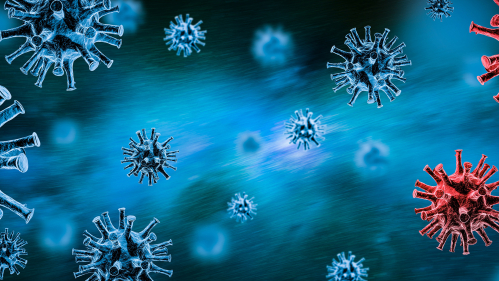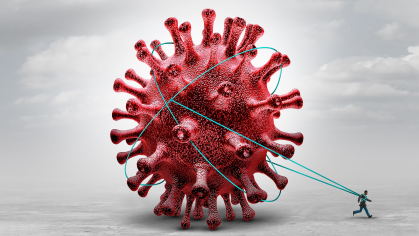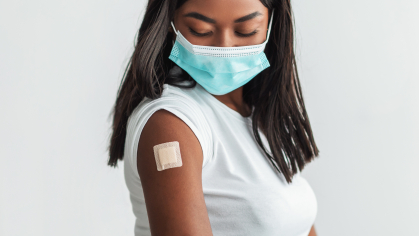COVID-19 Disparities Caused by Chronic Conditions and Lack of Health Care Access

Social determinants known to impact health, wellbeing and quality of life affect severity of COVID-19, according to a Rutgers study
The reason some people get COVID-19, face hospitalization and die may have more to do with underlying health conditions, where they were born, live and work, and their access to testing and care, according to a new Rutgers study.
Published in the Journal of Racial and Ethnic Health Disparities, the study examined whether health disparities in populations most impacted by COVID-19 were the result of higher exposure rates to the virus or the social determinants that are known to impact health, wellbeing and quality of life.
Although morbidity and mortality data suggest populations such as Black and Latinx have been significantly impacted by the COVID-19 pandemic, the cause of the disparities has been largely understudied.
“Identifying when and why individuals are most at risk for contracting COVID-19 enables public health officials and health care workers to properly educate the public and take necessary actions to decrease the mortality rates through education, policy, and intervention efforts,” says study author Henry F. Raymond, associate professor in the Department of Biostatistics and Epidemiology at the Rutgers School of Public Health.
The researchers surveyed and tested 924 members of the Essex County New Jersey community for SARS-CoV-2 antibodies at local grocery stores.
They found antibody prevalence was higher than rates reported from hospitals and schools, suggesting the number of individuals spreading the virus and asymptomatic individuals is higher than expected.
“Higher antibody prevalence, with no notable difference in presence by race/ethnicity or frequency of leaving the home, indicates an individual’s health outcome may be dependent upon underlying conditions rather than increased exposure,” Raymond said.
“Our findings also support the idea that other factors, including hesitancy to get tested or hesitancy to seek care due to concerns about health care costs and mistrust in medical professionals, significantly contribute to the disparities in health outcomes for these populations,” said study co-author Perry N. Halkitis, dean of the Rutgers School of Public Health. “The COVID-19 pandemic has made health care access and care issues visible and calls for health care professionals to prioritize health equity initiatives.”
Other authors include the Rutgers School of Public Health’s Peng Wang, Richard J. Martino and Kristen D. Krause; New Jersey Medical School’s Pratik Datta, Rahul Ukey, Abraham Pinter and Maria L. Gennaro; and North Jersey Community Research Initiative’s Corey Rosmarin-DeStefano.


